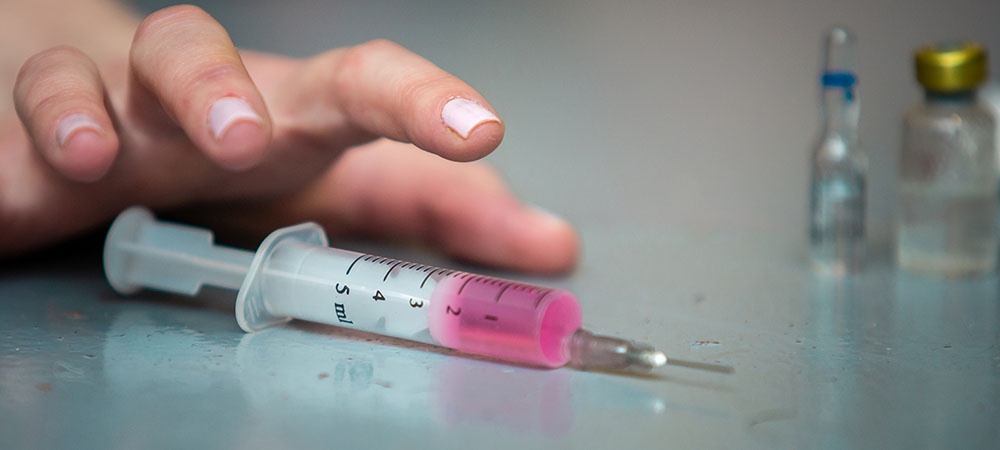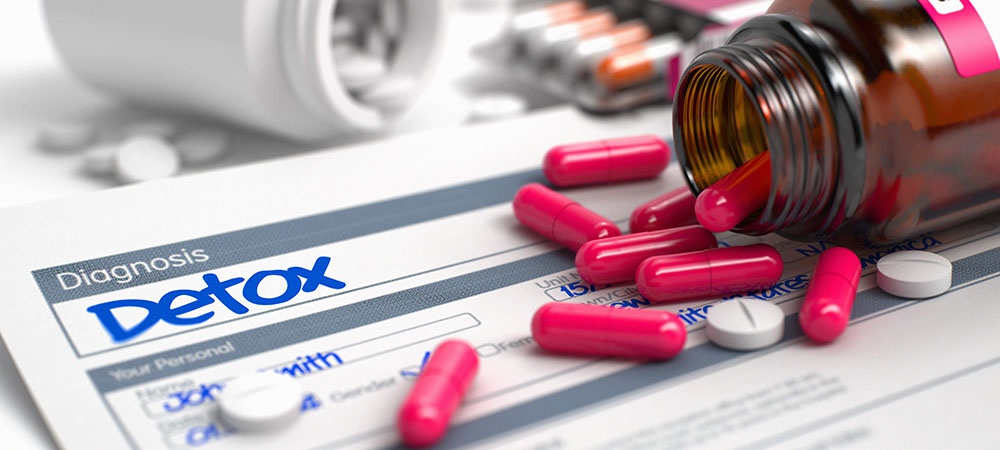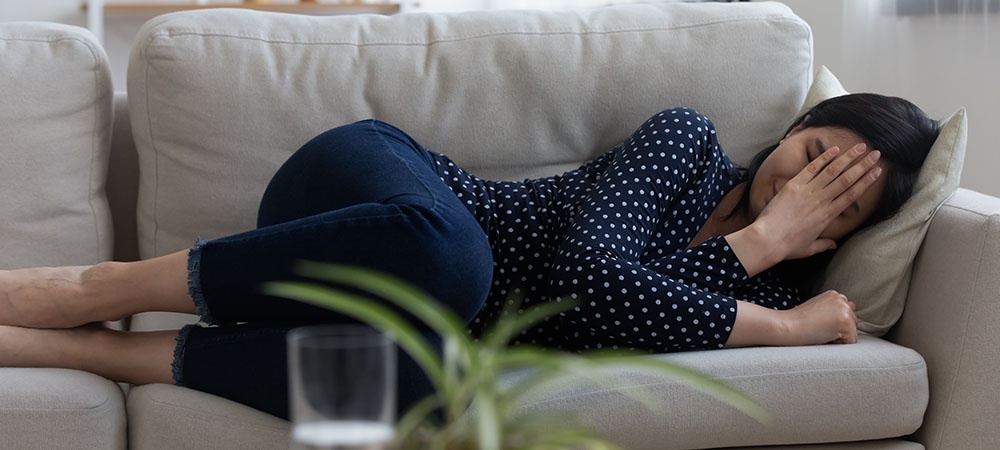Congratulations on getting through the first step of your drug addiction recovery. Most people think detox is the foremost stage in beating drug dependence. However, the action that sets off the entire treatment process is deciding to get clean. It takes profound self-awareness to come to terms with your self-deprecating habits. But you’ll need even greater guts and willpower to suppress your ego and ask for help.
However, the painful but rewarding aspect of the journey begins with drug detox. Fortunately, you can have your drug detox in several settings, even in your apartment. But slow down; you really don’t want to do that. Taking drug detox at home may be tempting, considering the “perks” that come with it. However, it is a bad idea.
Why is it a bad idea? We’ll get into that shortly. But, keep in mind that the process of weaning yourself off harmful substances can be dangerous. So, as much as you may want to save money, time, and other resources, at-home drug detox is not the best option for you. That said, let’s take a quick look at what drug detox entails.
The Fundamentals of Drug Detox– What Happens During the Process?
Put simply; detox is a body cleansing procedure. It’s a process of clearing out traces of toxic substances from the body. During detoxification, your body flushes out whatever remains of the harmful drugs you consumed during your addiction.
The detox process begins with abstinence. I.e., you stop taking the substance you’ve riddled your body with. So while you stop taking the drugs, your system gets to work on flushing out the remaining traces from its system. Unfortunately, however, the process is never enjoyable, and it sometimes gets quite excruciating.
Your body undergoes a series of changes during the detoxification process, which is why you may find it painful. That’s because your history of drug use has made you dependent on the substances. So, your body has to adjust to functioning without the same items, which won’t be easy. Overall, the deeper your addiction level, the worse the detox procedure.
Also, you should note that the detox process will be subject to the type of dependence you have on the substance. Below are the two forms of drug addiction.
Physical Dependence
This type of dependence causes your physiology to rely on drugs to function correctly. So, you’ll find your body struggling to do regular activities without the drugs. Of course, this is the most common and apparent side effect of drug addiction. And it’ll often leave you unable to do productive activities without using the drugs.
Most common withdrawal symptoms are also direct effects of physical dependence on drugs. For example, you may experience fatigue, physical pain, withdrawal-induced illnesses (vomiting, diarrhea, tremors), etc., during detox for drug addiction. It’s a result of physical dependence on the substance.
Psychological Dependence
Psychological dependence is a more complex result of drug abuse. In physical dependence, your body demands the substance; with mental dependence, your mind wants the drug.
Psychological dependence creates a belief that you can’t do without consuming narcotics. Of course, that also leaves you mentally unproductive without the drug.
Several withdrawal symptoms are effects of psychological dependence on drugs. For example, you may experience lethargy, hallucinations, cravings, depression, anxiety, and other psychotic episodes during drug addiction detox.
Psychological dependence is more problematic to tackle than physical dependence. Also, psychological dependence is usually the earliest sign of addiction which eventually translates to physical dependence. But during the detox process, it’s the part that you’ll have to tackle last after you get over the effects of physical dependence.
So, the drug detox process will start with you stopping your drug consumption. Then you’ll have to deal with the withdrawal symptoms that’ll surface a few hours after you take your last dose.
The severity of the withdrawal symptoms will depend on your level of addiction to the drug. Consequently, the extent of your withdrawal phase will depend on the severity of your symptoms.
The physical withdrawal phase often lasts for a few days. In extreme cases, it may last for up to a month. The psychological withdrawal phase can last from a month to a year. It’s a difficult period which you shouldn’t try to face alone. That’s why at-home drug detox is not a good idea for you. But why do people attempt at-home detox anyway?
Related Article: What are the Four Stages of Drug Detox?

Why Do People Try to Detox at Home?
Generally, being able to receive treatment in your home sounds like a convenient option. Then again, it enables you to protect your secret if you wish to keep it that way. It’s not so hard to see why an addict will prefer an at-home drug detox regime. But that doesn’t make it the best option. Anyway, below are some reasons people go for at-home drug detox sessions.
Seemingly Low Cost
Outpatient drug detox options are not as expensive as inpatient treatment regimes. You’re not paying for accommodation, feeding, or other facilities available at inpatient clinics. So, it’s the obvious choice for most people to opt for the cheaper at-home drug detox procedure.
Keep in mind that inpatient drug detox programs can also be undesirable depending on the level of facility available at the medical centre. The clinics with excellent equipment always cost more. So if it were us too, we’d prefer not to spend money in a private facility for a treatment we can take at home.
Everyone Loves The Comfort of Their Home
Remote work is currently on the rise, with several people preferring to do their jobs from the comfort of their homes. It’s an unrelated point, but it draws a parallel to the subject of discussion. Many people love settings that enable them to get their needs without stepping out of their rooms. In the same way, they’ll rather get their drug addiction treatment without having to leave their homes.
Plus, for someone going through a withdrawal phase and the instability it brings, the comfort of a familiar environment provides a soothing effect. You won’t have to deal with having to adjust to the new environment with an at-home drug detox program. But that still doesn’t mean it’ll always work out positively.
The Stigma of Addiction and the Fear of Public Judgement
Many people are afraid of others judging them for their drug dependency disorder. Society tends to be critical of people with addiction problems. It’s even worse if the individual has some clout or recognition in the community. In extreme cases, these patients can lose their reputation and even more if the public knows about their addiction problems.
Coming out and revealing your addiction to people is never an easy thing to do. So, most people prefer to keep their narcotics dependency a secret and opt for at-home drug detox.
It’s not difficult to understand why people prefer to take their drug detox sessions at home. They don’t have to spend for inpatient treatment, the whole procedure takes place in the comfort of their homes, and the community doesn’t have to know about their secrets. So, it’s a no-brainer situation.
But none of those reasons can override the dangers of at-home drug detox treatment. While you may get to save money and protect your secret, you’re setting yourself up for several undesirable repercussions. So let’s look at some of the downsides to at-home drug detox practices.

At-home Drug Detox Consequences
Drug addiction recovery is a journey that’ll require stopovers at several different junctures. One of those locations should be a certified addiction treatment centre. Going cold turkey at home can put you in a myriad of risks and dangerous situations. Below are some unpalatable repercussions that can come from at-home drug detox.
Detox At Home May Discourage You From Taking a Comprehensive Addiction Treatment Program
The typical addiction recovery process occurs in stages, starting with detox and progressing into comprehensive treatment. The comprehensive care regime will include therapy and many other solutions. However, you’re less likely to continue the addiction treatment if you had taken your drug detox procedure at home.
At-home drug detox may convince you that you’re free of your addiction and that you don’t need to continue the treatment. However, it’s a mental trick that gets you to lower your guard and lure you back into it.
You Are More Likely to Relapse and overdose On Drugs.
The biggest obstacle you’ll face in your recovery journey is the looming risk of relapse. The national institute on Drug Abuse records that the substance abuse disorder relapse rate is between 40% and 60%. That tells us it’s something that happens quite frequently.
Quitting substance abuse is a beautiful idea that seems easy at first. But simply stopping your drug consumption doesn’t address the root cause of the problem in the first place. It’s only a matter of time before your urges start gripping you without mercy and push you to indulge in your self-deprecating habits again.
Now imagine you’re all alone in your apartment, and the full force of your drug cravings hit you. How do you plan to withstand it? What happens during that phase of your at-home detox procedure? You’re most likely to fall back into substance abuse. Remember that addiction recovery is not a subject of willpower or strong desire. So, controlling yourself once or twice may not be sufficient to see you through the journey.
Then again, you may have your habit triggers littering your apartment. So, they may set off intense cravings that can lure you back into drug abuse. Considering that you’ll most likely be alone most of the time, no one will stop you if you attempt to go back into your addiction.
Furthermore, in the early stages of the recovery journey, you’re like someone bedridden for a long time, just learning to use your limbs again. In the early stages, you’ll need support to move around. If you attempt to stand up by yourself suddenly, you’ll most likely fall. So, in the same way, if you try to stop the drugs without support at home, you’re most likely to go back into your addiction.
The possibility of overdosing follows the risk of relapsing. It usually happens due to intense withdrawal symptoms, which cause uncontrollable cravings. As a result, you find yourself unable to resist the drug and consume more than is safe for you to satiate your urges quickly.
Of course, overdosing poses significant risks to your well-being. Not only can it cause permanent damage to your health, but it can also inconvenience the people around you.
Death In Extreme Cases
That sounds pretty grim, doesn’t it? Unfortunately, death from the drug detox process is not as rare as most people think; it’s a strong possibility. The Center for Disease Control and Prevention recorded 93,331 death cases relating to drug overdose in 2020 alone. Remember that going cold turkey without medical supervision increases the chances of overdosing, which may subsequently lead to death.
How’s that even possible? When you suddenly stop consuming a drug you’ve grown dependent on, your body experiences an equivalent of a culture shock. You have essentially thrown it into a new environment that it doesn’t recognize. Things are different, and now it suddenly has to survive without the substance it’s come to rely on for support.
Let’s break it down a bit further. Think of it this way: you let your brain and body system mingle with narcotics and psychoactive materials for a long time. Then over time, your brain recognizes these things as its buddies; they become BFFs, and it falls in love with them. At that point, it begins to see itself as unable to live without them. Then one day, these new friends disappear without warning.
Now, that leaves your brain confused and perplexed. As a result, it throws the withdrawal symptoms at you in protest. Then with time, your mind eventually gets the rest of your body to cooperate with it and they beg, threaten, and fight for you to bring the substance back.
In extreme cases, your body may self-destruct while protesting the absence of the substance. While this may not be very common, it’s still a possibility.
Generally, during the withdrawal stage, you may experience the following symptoms.
- Tremors,
- Panic attacks
- Anxiety
- Depression
- Dehydration
- Vomiting
- Trouble breathing
- Heart attack
Some of these symptoms, such as heart attack, can have fatal repercussions. So, taking the detox regime at home without professional supervision is not good for you. It increases the chances of the undesirable happening.

Health Complications
Detoxing at home without a professional may not kill you – directly. However, it can result in some damaging health complications. Typically, you may experience medical conditions depending on the object of your addictions. For example, withdrawal from Benzodiazepines can cause seizures and other psychotic symptoms.
Typically, physicians will tend to these conditions as they arise during an inpatient detox program. But you’ll be on your own during an at-home detox regime. Also, the chances of trained personnel being around to help you are low. So you may find yourself in dire straits as a result.
It Isolates You Without Support From Professionals or Like-Minded Peers
One of the things at home detox denies you is the company of other fighters like you and round-the-clock professional support. The first few days of detox are often overwhelming and can be outright depressing. It helps to be around people who’re fighting or have fought the same battles as yourself at such moments. They’ll provide the necessary encouragement and give you the fortitude to press on.
But when you sit in your home, you isolate yourself from such settings. Even if you participate in online support groups, it’s not comparable to being in the company of people in real life. Plus, your home environment may not be supportive or encouraging for detox.
Fine, you may have friends and family encouraging every step of the way. But, it’s also incomparable to how someone who’s going through the same trouble as you would understand your struggles and support you.
So, should I do at-home detox? No, we think you shouldn’t do it. Instead, go for inpatient treatment if you can afford it. You will be glad you did.
Related Article: What is Medically Supervised Detox: Procedure, Withdrawal, Treatment Methods
Conclusion
While it’s tempting to try at-home drug detox, it’s not a good idea for your recovery. Yes, it’s convenient, you get to save money, and nobody has to know about your secrets. However, it can not only jeopardize your health, but it can also put you in fatal danger. All the perceived benefits of the regime are not worth your health or life.
You can take your best shot at recovery with a team of qualified medical practitioners helping you all the way. Professional support will see you through the detoxification process easily. Here at Medical Detox Ontario, we’ve set up an organization to help you and others like you who need help. So, feel free to use our medical drug detox centre in Ontario if you need help with your drug detox treatment.

